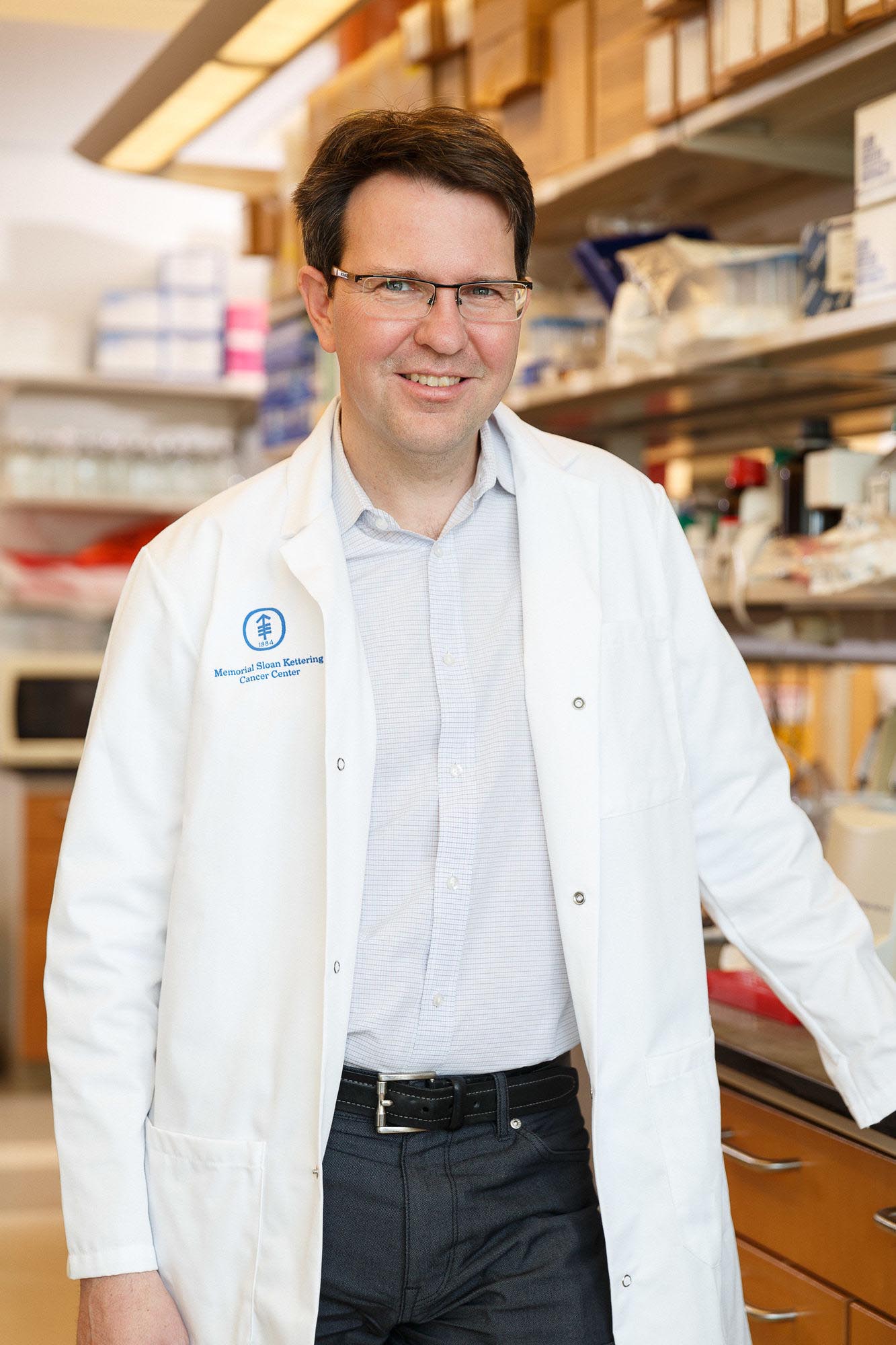
Research
Our goal is to develop new cancer therapeutics and we are curious to identify biological vulnerabilities in cancer cells that provide opportunities for attack. Our research explores the molecular and cellular changes that drive cancer cells and ways to create new types of therapeutics including small molecules, engineered immune cells, and antibodies.
We focus on deadly forms of lymphoma and specific areas of interest include: (1) the biology of immune receptors that control lymphoma growth and shape the microenvironment; (2) oncogenic RNA translation programs; and (3) epigenetic and transcriptional changes that govern the biological and clinical behavior of lymphoma and other cancers. We are guided by the mutational evidence in human cancer that flags critical pathways and processes and we use cutting-edge molecular tools to define underlying mechanisms. We use unbiased CRISPR/CAS9 screens to identify strategies of disrupting cancer drivers and we test our new therapeutic ideas in primary patient xenografts and genetically engineered lymphoma models.
Current Projects:
- Targeting oncogenic translation programs in cancer
- Dissection of genetic drivers of leukemia and lymphoma
- Immune escape mechanisms in cancer
Bio
Dr. Hans-Guido Wendel is a Member/Professor at the Sloan-Kettering Institute and trained in Medicine in Germany and the Scotland, followed by postdoctoral studies in Cold Spring Harbor (USA). His research explores biological differences between normal and malignant cells to identify new targets for therapy. This has led to major discoveries especially in lymphoma and leukemia. For example:
- We discovered the oncogenic role of an RNA helicase and developed drugs to target it (Nature 2004 & 2014).
- We defined key drivers of lymphoma and developed innovative therapies including CAR T cell “micro-pharmacies” (CELL 2011 & 2016).
- We discovered how glucose regulates transcription (CELL 2019). We are now developing inhibitors to target this process.
Distinctions:
- National Cancer Institute Outstanding Investigator
